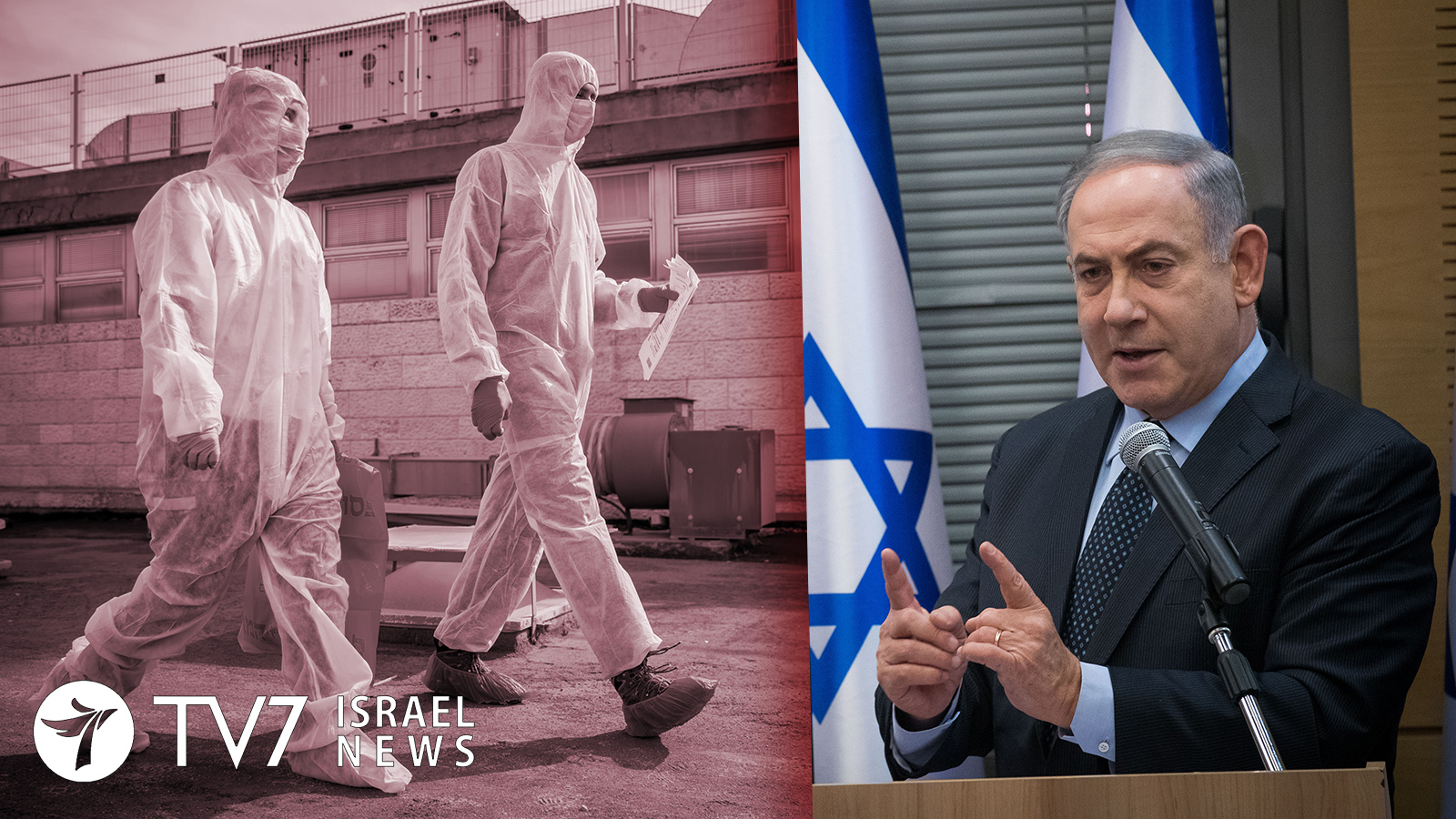Israel has added 5 more nations to its restricted fly-list in attempts to prevent further contagion of the novel coronavirus (COVID-19). Now all non-citizens from Austria, Germany, Spain, France and Switzerland will be denied entry into the country. Israeli nationals returning from those nations must observe a 14-day home quarantine.
Similar limitations had already been placed on travelers from mainland China, Hong Kong, Thailand, Singapore, Macau, South Korea, Japan and Italy.
The new measures were declared by Israeli Prime Minister Benjamin Netanyahu at the Ministry of Health in Jerusalem, following discussion on continued preparations to deal with the coronavirus with Health Minister Yaakov Litzman, head of the National Security Council Meir Ben Shabbat, the Acting Director General of the Prime Minister’s Office, the Director General of the Health Ministry, the Director General of the Population and Migration Authority, the Director General of Magen David Adom (MDA, national emergency paramedical service) and other senior officials.
Prime Minister Netanyahu stunned many with his statements. After saying he had “just completed another discussion on our handling of the corona crisis,” he repeated, “I say ‘crisis’ but it must be understood that we are in the midst of a global pandemic.”
“They do not call it this, but this is the truth – and it needs to be said,” proclaimed the Israeli leader. He then declared that “it could be that it is among the most dangerous of such pandemics in the past 100 years.”
Despite that severe stance, Netanyahu proclaimed that “Israel is in the best situation of all other countries, together with another two or three Western countries” due to his self-described “over-preparation” and implementation of “even very harsh” measures.
Emphasizing that “very great care must be taken regarding personal hygiene,” the Premier called upon the public to refrain from shaking hands. Netanyahu said he would be glad to be the first to set an example; and with a smile, suggested adoption of the Indian “Namaste” greeting in place of the Western social convention.
Israeli Health Minister Ya’akov Litzman said it was the government’s duty to “take any action – even if it isn’t popular – if it pertains to health; regardless of any objections,” and vowed to undertake any further action as required.
The Health Ministry posts daily updates regarding official decisions and instructions for the public. Starting today, TV7 readers can find a link to the Ministry of Health page of guidelines in English on our official website www.tv7israelnews.com.
In addition, Minister Litzman said that coronavirus instructions will be published in newspapers and broadcast on media networks for members of the public who do not have access to the internet.
National Security Council Director General Meir Ben Shabbat stressed that every day the national effort to slow the spread of COVID-19 is beneficial for public health, the economy and lives of Israelis and people world-over.
The Ministry of Health has issued a Public Health Decree 2020 on the Novel Coronavirus dictating orders regarding the potentially-fatal disease. In addition to anyone who was in the above-listed nations within 2 weeks (the virus incubation period) of returning to Israel, any individual who has been in close contact with a confirmed patient in the last 14 days must also observe a 14-day home quarantine. Close contact is defined as being within approximately 2 meters (6 feet) of a COVID-19 case for more than 15 minutes.
The Home Quarantine Decree applies to connecting flights in mainland China or South Korea, although not to layovers in Hong Kong, Macau, Singapore Thailand and Japan if travelers did not leave the airports. Travelers who left Italy 13 February 2020 or later must immediately be placed on home quarantine, which is also true for anyone who caught a connecting flight from Italy.
Work absences will be excused if patients provide certification of the departure dates from the specified locations and are NOT to ask general practitioners to issue ‘illness statements.’ Those who have been quarantined are permitted to resume their normal routines once 15 days passed since leaving the designated countries if they have not developed any symptoms associated with the virus.
Anyone concerned about contracting the virus who has a 38C fever (100.4F) or higher, cough, trouble breathing or other respiratory symptom is instructed to immediately call the MDA Hotline 101; after which a paramedic will make a home visit to take specimens and consider therapy with the advice of a medical doctor. Concerned individuals are absolutely not to go to their health providers or hospital emergency services.
The disease was named ‘coronavirus’ due to its resemblance to a crown (corona in Latin) when viewed by electron microscopes. The extent to which patients will become sick is dependent on which specific strand of the virus to which they have been exposed, ranging from mild ailments such as a cold to severe cases that could negatively affect lungs and lead to multiple organ failure, such as the Middle East Respiratory Syndrome (MERS) and Severe Acute Respiratory Syndrome (SARS).
